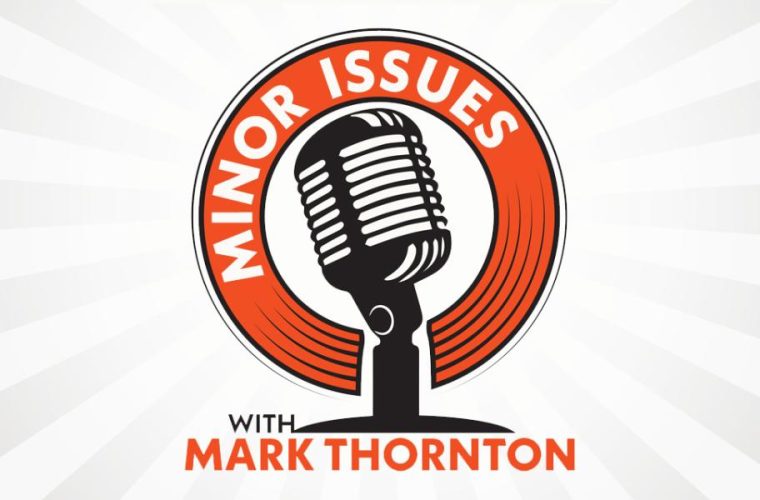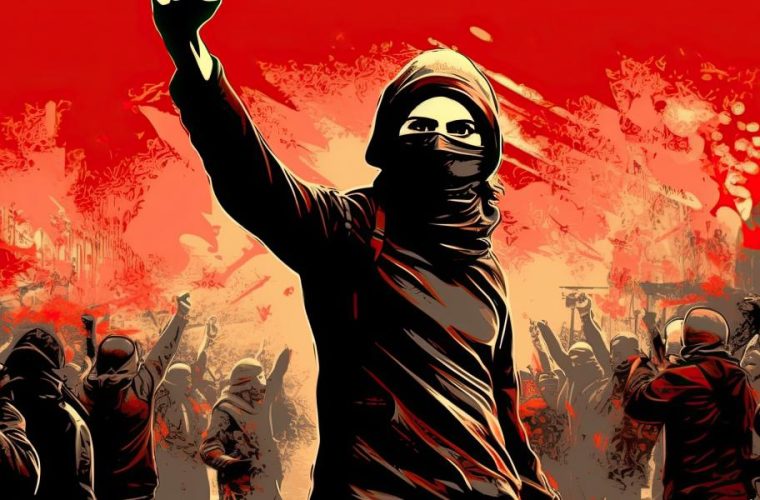
Threats Against the State: Anarcho-Tyranny, Murder, and Legitimacy
On August 9, the Federal Bureau of Investigation killed Craig Robertson, a seventy-four-year-old Utah man, during a raid on his home. The man had posted numerous online threats, saying he wanted several state officials dead and had the means to make that happen. The authorities took his declarations at face value, although he was a near octogenarian dependent upon a cane to walk and was described as being “frail of health” by his neighbors.
Something is off, and for a variety of reasons. First, if this man really was a great threat to the life of multiple officials as the state believed, why was he not addressed earlier? After all, there were a variety of threats against multiple people that are now being deemed “credible” to justify the state’s actions, so why was he only addressed now? One might respond with the fact that President Joe Biden was going to be speaking a mere hour away from the man’s residence in Salt Lake City, whereas he hadn’t been there before. Even if we were to assume that this justifies a raid on a disabled, unhealthy seventy-four-year-old, the question still remains, why now? Jill Biden visited Salt Lake City in 2021, only a few months after the infamous desecration of democracy on January 6, and the “threat” was deemed acceptable, evidenced by the fact that the man remained alive for a couple more years. Moreover, some of the threats were against Gavin Newsom, who resided just a day’s drive away from Mr. Robertson. If we are to assume, as the state did, that Robertson would somehow surmount his physical impairments to carry out some plot, a few hours of travel to reach Newsom would not be much more than the hour of travel it would’ve taken for him to even get near Biden during his Salt Lake City visit.
To summarize the issue that many people, including the man’s neighbors, found immediately, Robertson’s threats were unactionable and unserious. So why was he targeted and killed? He had spoken in this grandiose manner for a while, and no one thought that any of it was credible. A defender of the state’s action might point out here that he broke a law by threatening the president.
Robertson is far from the only boomer to issue these threats online. In fact, anyone who has spent even a cursory amount of time in conversation with a very political American above the age of sixty has probably heard threats directed at all sorts of politicians and officials. One could easily go looking for that demographic (and younger) on any social media platform and find threats in abundance. Actually, one could find a series of high-profile threats, also issued against presidents, by individuals much more able to execute a plot.
So why was Robertson targeted by the state while actionable (or potentially actionable) threats go unanswered? Asking a similar question, why those present for the January 6 demonstrations got the harshest application of the law possible while rioters in 2020 largely went unpunished, yields the same answer. Robertson and the majority of the protestors on January 6 were normal people who otherwise had not done anything wrong. The persecution of both began just after major violations of the same laws had taken place by much more destructive or much more able people who had escaped punishment. The state selectively enforced its laws for two reasons.
The first reason lies in a concept known as anarchotyranny, or at least part of it. As a matter of efficiency, it is easier for the state to ignore larger, more violent law breakers in favor of harshly patrolling normal people. Taking on the greater lawbreakers would require a will that most if not all appendages of the state do not currently possess, fancifully assuming that they would even want that will to begin with. Tackling those worse offenders would also require a larger expenditure of resources while facing a greater chance of casualty. It is simply much safer and more profitable to target a disabled seventy-four-year-old in a quiet town or a bunch of normal people who showed up once at the Capitol for a protest than it is to equally enforce the law on wealthy and connected celebrities or rioters with a history of violence.
The second reason lies in narratives and their effect on the legitimacy of the state. Large swathes of the media in the United States, alongside various parts of the state and academia, have been crafting and operating under a narrative that yokel red staters with guns and unmoderated peasants sharing their opinions on social media are out to destroy American democracy. Though it has been long in the making, this narrative intensified around the 2016 election, again in the interim and 2020 election, and then became dominant after January 6, 2021. The narrative is very powerful, being as it is the state’s direct refutation against the populism that menaces it so. If populism can be defeated in this manner of brute media force, selective legal penalties, and crass academic reinterpretation, the state as it currently exists can freely keep expanding and enriching its own at the expense of normal people.
How does this narrative, or any narrative for that matter, help the state? The narrative strengthens the most critical factor of the state’s existence: legitimacy. As Murray Rothbard puts it, “Thus, ideological support being vital to the State, it must unceasingly try to impress the public with its ‘legitimacy,’ to distinguish its activities from those of mere brigands.” This is the case because
in order to continue in office, any government . . . must have the support of the majority of its subjects. This support . . . need not be active enthusiasm; it may well be passive resignation as if to an inevitable law of nature. But support in the sense of acceptance of some sort it must be; else the minority of State rulers would eventually be outweighed by the active resistance of the majority of the public.
The state works to justify its existence in the minds of enough of the population, securing its legitimacy, by crafting narratives. In the narratives mentioned above, like the red staters destroying American democracy, the state’s existence is justified because it must defend democracy and its supporters from those backward red staters and dangerous seventy-four-year-olds. If a demonstration at the Capitol needs to be dispersed or a Trumpist Republican needs to be shot in his home to do this, all the better. By dispersing the protestors or shooting the man, the state is fulfilling its function under the given narrative and further justifying its existence. After all, what if the state and its operators hadn’t been there to vigilantly protect the sacred temples of American democracy and its loyal adherents?
As for Robertson, whether the man’s threats were serious or actionable has no bearing on the reasoning of the state and its foot soldiers. The man did not believe in the current state’s legitimacy, and he was vocal about it. According to the state’s narrative, people who do not believe in the legitimacy of the current state are hardly people; they are dangerous, unsound, and usually evil. “Having” to kill someone in that category may, to the state, be unfortunate, but the benefit it provides in the form of strengthening the narrative and bolstering the state’s legitimacy is very valuable.
At least, that’s how it works in theory. While the narrative against the red staters was strengthened, with every major media organization rearticulating it in some form when running the story, whether the population still accepts the narrative is a different issue. Social media websites like Twitter saw widespread outrage at the occurrence, even from people who normally support the state and its current leaders.
General outrage and the desynchronization of the population from the state’s narrative is where our hope lies. If in the pursuit of reinforcing its position the state makes itself increasingly illegitimate in the minds of the public, then the state is at its weakest. Any mistakes and miscalculations on the part of the state, like the killing of a normal person in his own home not playing well with the public, must be ruthlessly punished by opponents of the state. In doing so, the opponents of the state will assist in dispelling the state’s legitimacy from the minds of more and more of the population, paving the way for the eventual destruction of the state and the reclamation of liberty that it once extinguished.



